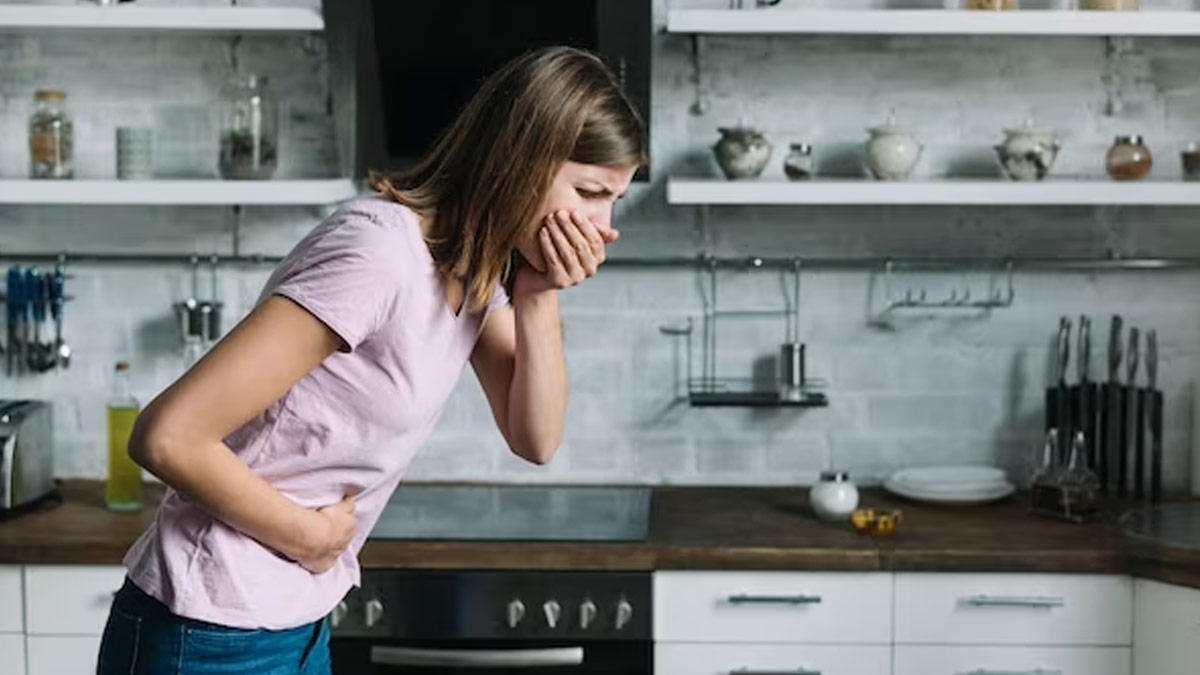
Have you ever eaten a delicious meal only to be hit by a rapid onset of stomach cramps, nausea, or vomiting? If so, you may have suffered from food poisoning. It's a distressing situation that can turn a delightful dining experience into a nightmare. It happens when one consumes contaminated eatables. Timely intervention is preferred to avoid any serious consequences.
We spoke to Dr Dhiraj Bhattad, Consultant - Internal Medicine, Sir HN Reliance Foundation Hospital and Research Centre, Mumbai, who explained food poisoning and how to treat it.
How To Recognise Food Poisoning?

According to the MAMC Journal of Medical Sciences, contaminated food or drinking water is responsible for around two million deaths per year in India.
Dr Bhattad said that food poisoning usually leads to nausea, vomiting, abdominal pain, and loose stools. It starts a few hours to days after consuming the contaminated food. Sometimes, you may experience fever as well if the cause is due to an infectious agent like a virus or bacteria. In that case, symptoms may be more severe.
Excessive vomiting and diarrhoea can cause dehydration. Signs of dehydration are dry mouth, reduced urine output, and generalised weakness with dizziness.
Also Read: Role Of Eating Right In Warding Off The Risk Of Food Poisoning
What Measures Should Be Taken After These Symptoms?
Dr Bhattad highlighted the measures that one should take to treat food poisoning:

- You should increase fluid intake for increasing hydration levels. One needs to take more water, juices or Oral Rehydration Solutions (ORS).
- Taking proper rest and not physically exerting oneself also helps.
- Avoid spicy and oily food. Instead, eat bland foods like curd rice, ‘khichdi kadhi’, toast, or fruits like bananas.
He added that in most cases, food poisoning may be self-limiting and medications may not be needed. However, if the symptoms are troublesome and there are signs of excessive dehydration with fever, then one needs to immediately consult a doctor.
- If nausea or vomiting is causing complications, then antiemetics may be given.
- Anti-diarrhoeal medicine can be given, in case of excessive loose stools.
- If there is a fever as well along with the above symptoms, then the doctor may give you antibiotics for the food infection, along with the symptomatic treatment.
How To Prevent Food Poisoning?

As the golden dictum goes, prevention is better than cure. One needs to understand what preventive measures can be taken in the first place to avoid food poisoning. Dr Bhattad listed some tips to prevent food poisoning, which are as follows:
- One of the most essential steps that should be kept in mind is maintaining hygiene. You need to wash your hands thoroughly, especially before preparing or consuming the food and after using the washroom.
- Food should be cooked properly and stored in the refrigerator if needed.
- Avoid consuming of stale food.
- Be careful with raw or uncooked foods, especially salads, meat, or seafood.
Dr Bhattad added, “We observe that people eat food in unhygienic places and then face the issue of food poisoning. So be mindful of that too. Be careful with the drinking water, especially when you are travelling. Use bottled water or boil it before consumption, especially during the monsoon season.”
Disclaimer
The information in this article is provided by a registered healthcare professional. However, we advise that you seek a diagnosis from a medical professional depending on your body type and medical history.







